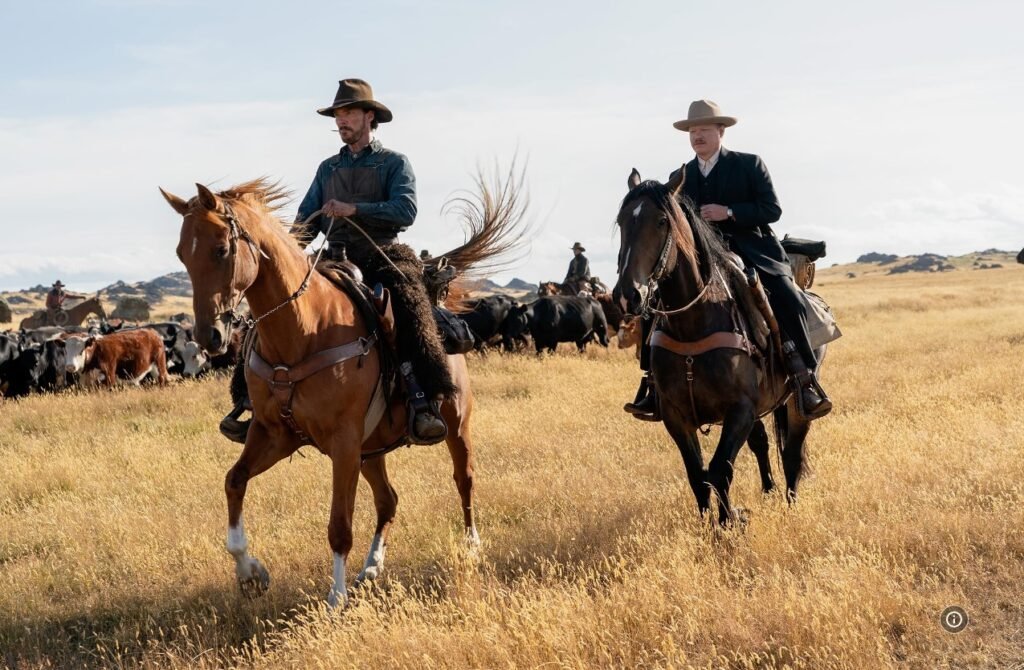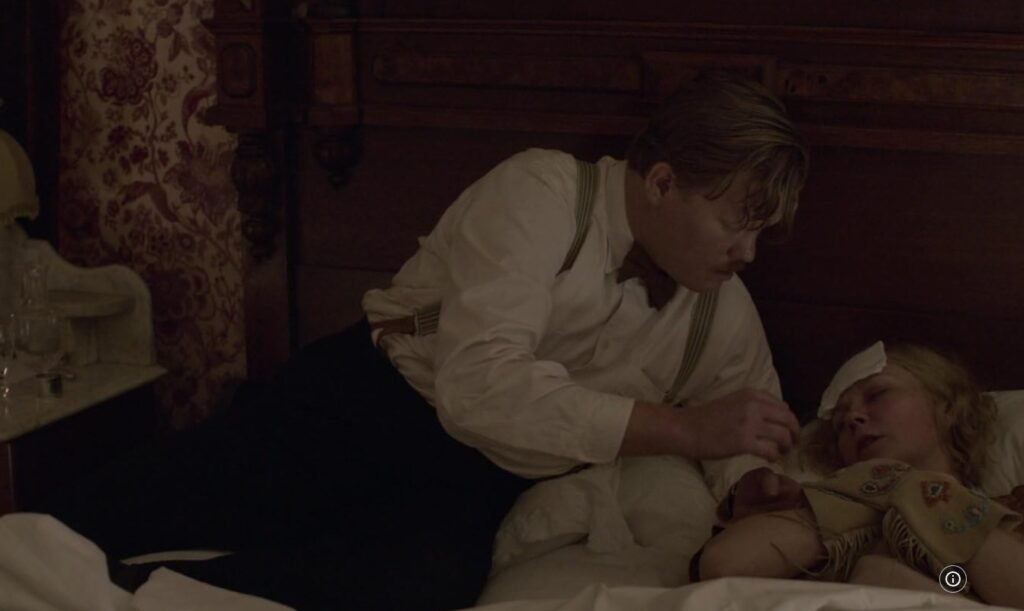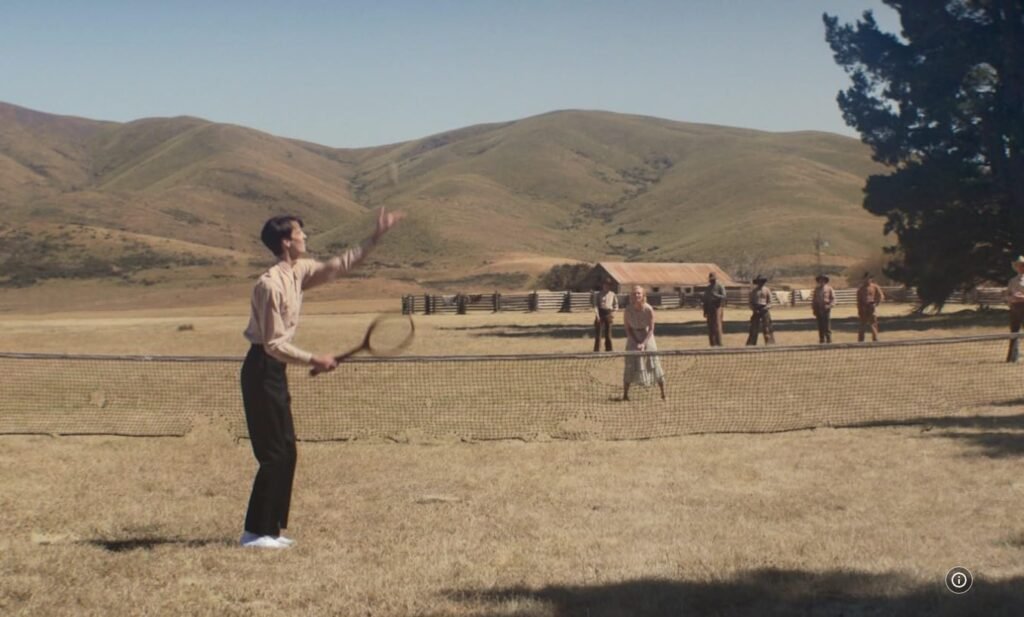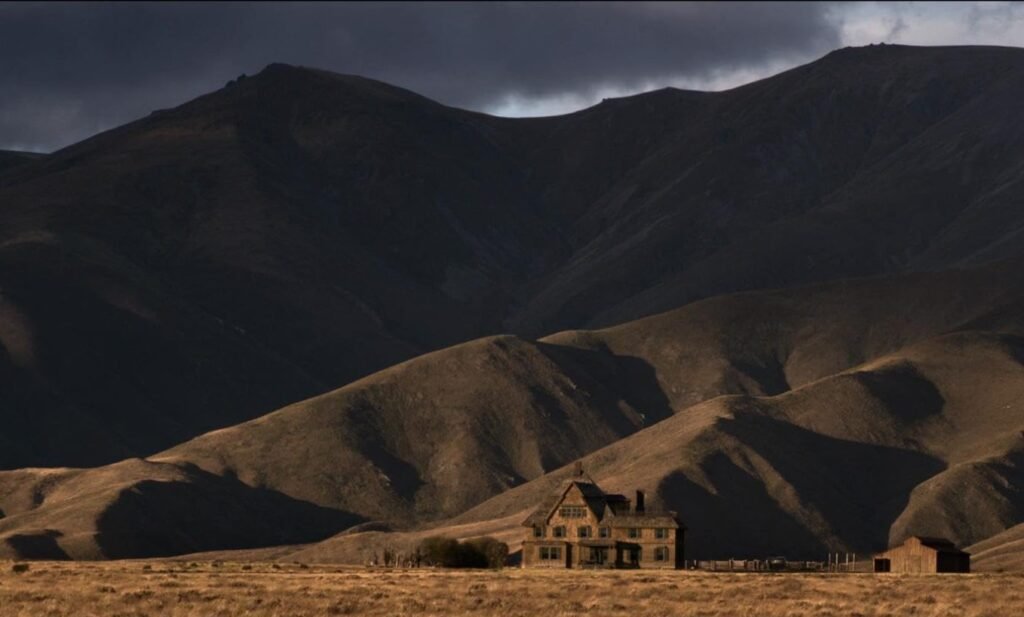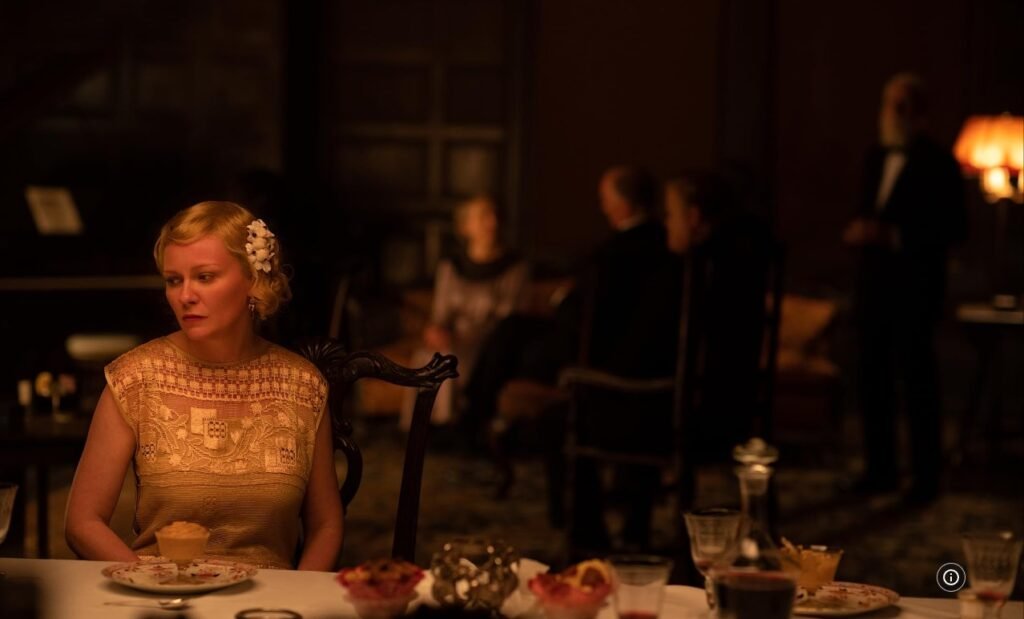The Power of the Dog Story :-
There’s an ethereal and poignant quality to the vast, sprawling landscapes depicted in Jane Campion’s The Power of the Dog. The cinematic portrayal of the arid deserts invokes a sense of longing, a yearning for something beyond the barren expanse. Conversely, the verdant, Eden-like forests offer a semblance of respite, yet their presence only serves to accentuate the underlying melancholy that pervades the narrative. Indeed, The Power of the Dog is a film that thrives on introspection, delving deep into the psyche of its characters as they grapple with internal conflicts and unspoken desires.
Movie Ratings
| Release Date | 1 December 2021 |
| Language | English |
| Genre | Drama, Romance, Western |
| Duration | 2h 6min |
| Cast | Benedict Cumberbatch, Kirsten Dunst, Jesse Plemons, Kodi Smit-McPhee, Thom, Genevieve Lemon, Keith Carradine, Frances Conroy, Peter Carroll (actor)|Peter Carroll, Adam Beach |
| Director | Jane Campion |
| Writer | Jane Campion |
| Cinematography | Ari Wegner |
| Music | Jonny Greenwood |
| Producer | Emile Sherman, Iain Canning, Roger Frappier, Jane Campion, Tanya Seghatchian |
| Production | New Zealand Film Commission, Cross City Films, BBC Film, See-Saw Films, Bad Girl Geek, Max Films, Brightstar |
| Certificate | 16+ |
Set against the backdrop of 1920s Montana, the film centers around the complex dynamics within the Burbank family. Brothers Phil Burbank, portrayed with captivating intensity by Benedict Cumberbatch, and George Burbank, brought to life with nuanced subtlety by Jesse Plemons, own a ranch that serves as the focal point of the story. Phil embodies the archetype of traditional masculinity, exuding confidence and authority, while George, in contrast, is more introspective and reserved.
Yet, beneath Phil’s outward bravado lies a deep-seated sense of insecurity and vulnerability, particularly when faced with the introduction of Rose, portrayed brilliantly by Kirsten Dunst, into their lives. Phil’s reaction to Rose’s presence reflects the jealousy and resentment often associated with toxic masculinity, while George struggles to confront his brother’s behavior and assert his own identity.
The arrival of Rose’s son, Peter, portrayed with impressive depth by Kodi Smit-McPhee, serves as a catalyst for the unraveling of Phil’s carefully constructed facade. Through Peter’s perspective, viewers are afforded glimpses into the intricacies of Phil’s character, from his fleeting moments of vulnerability to his explosive displays of anger. The film is replete with subtle callbacks and symbolism, drawing parallels between Phil’s past and present actions and inviting audiences to contemplate the complexities of masculinity.
Director Jane Campion adeptly navigates these themes, challenging traditional notions of strength and dominance while exploring the intricacies of human nature. The cinematography by Ari Wegner captures the rugged beauty of the landscape, juxtaposing moments of tranquility with scenes of intense emotional turmoil. From Phil’s solitary contemplation by the stream to the visceral intensity of the bull castration sequence, the visuals serve to underscore the film’s thematic depth.
Benedict Cumberbatch delivers a tour de force performance, infusing Phil with a complexity that transcends the surface level. His interactions with Kodi Smit-McPhee’s Peter are particularly poignant, highlighting the emotional depth of their relationship. Similarly, Kirsten Dunst’s portrayal of Rose is imbued with nuance and vulnerability, adding layers to a character caught in the crossfire of masculine ego.
Complementing Campion’s vision is Jonny Greenwood’s evocative score, which enhances the film’s emotional resonance and underscores its themes of identity and belonging. From moments of quiet introspection to intense confrontations, Greenwood’s music serves as a powerful backdrop to the narrative, heightening the emotional impact of each scene.
In conclusion, The Power of the Dog is a masterful exploration of masculinity, identity, and human nature, anchored by stellar performances and breathtaking visuals. It challenges viewers to confront their preconceptions about strength and vulnerability, leaving a lasting impression long after the credits roll.
